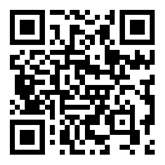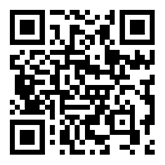India is the third largest producer of raw coal in the world, and more than half of its energy demand is met by raw coal. With the rapid economic development, India's power demand is increasing. According to statistics, about 600million of India's 1billion people still have no access to electricity. To this end, India plans to vigorously develop the thermal power market in the shortest possible time. Therefore, India's power market has great room for development.
At present, domestic engineering companies' projects in India are mainly self owned power plants of electrolytic aluminum plants, as well as investment companies. Products related to pressure vessels are mainly: thermal power projects, EPC of engineering companies; Direct exports of boilers, steam turbines, power station auxiliaries, etc; Pressure vessels, valves, pipe fittings and other components for petrochemical industry; Steel pipes and other raw materials.
Products entering India must comply with IBR
In most countries, boiler and pressure vessel manufacturers must abide by strict rules and regulations when selling their equipment, which is called "business license". In Europe, the United States and India, boilers and pressure vessels must comply with the Pressure Equipment Directive (PED), the American Society of Mechanical Engineers (SME) specifications and the Indian boiler code (IBR), respectively. Boilers and pressure equipment must be certified by independent authorized institutions to ensure compliance with all laws and regulations.
The central boiler board of India (CBB) is a department specially responsible for formulating boiler materials, design and construction standards, and also registers and inspects boilers. IBR regulation mainly stipulates the design, manufacture and inspection of boilers and pressure vessels in India and imported into India. It is a safety regulation rather than a standard regulation, similar to the domestic "boiler regulation and volume regulation". Boiler and pressure vessel equipment entering India must comply with IBR regulations.
Contents of BV intervention inspection
The Indian boiler code clearly stipulates that boilers manufactured in countries other than India need IBR inspection, and the third-party inspection organization must be approved by the central boiler board of India. Bureau verities (BV) is one of the first inspection companies authorized by CBB in India, including product inspection and welding personnel recognition and certification. At present, there are about 50 experienced IBR authorized engineers. More than 100 domestic manufacturers also unanimously choose bv for IBR inspection and certification.
For the contents that ibr.bv inspection company needs to intervene in the inspection
Design data review (signature for confirmation)
Inspection of raw materials (issuance of certificates)
Witness and confirmation of welding process
Examination of welders and welding operators
Whether the inspection of equipment and instruments used in the workshop is within the validity period of verification, including heat treatment and NDE equipment
Qualification confirmation of NDT personnel
Process confirmation of components
Quality assurance means
Inspect the main manufacturing processes of main components (such as forming, welding, etc.)
Confirmation of heat treatment and NDE results
Confirmation of inspection results of product test panels
Final inspection (size, appearance, marking, water pressure, paint)
Stamping, signing and issuing bank orders, and issuing certificates
Certification is for products rather than enterprises
IBR specification has no mandatory certification requirements for enterprises. All certifications are related to products. The latest version is 9th EDN SEP, 2007. There are 626 provisions in IBR specification, involving all aspects of product materials, design, process and inspection. It is applicable to all regions of India except Jammu and Kashmir. The specific scope of boiler pressure vessels is: closed vessels and accessories with a volume greater than 22.75l, and the specific scope of power pipelines is: pipeline pressure greater than 3.5kg / cm2 or inner diameter greater than 254MM.
IBR provisions for material and equipment certificates in general
Table I format record: memorandum provided by the inspection department.
Certificate of conformity in the form of Table II: the certificate issued by the inspection department to prove that the materials used have passed the test and that the boiler is manufactured under the supervision of the inspection department.
Table III format certificate: manufacturing and test certificate signed by the boiler manufacturer or the authorized representative of the manufacturer (including: Boiler description, main overall dimensions, specific materials used in manufacturing, thickness of all steel plates, diameter and hole forming method of riveting holes in the boiler shell, specific conditions in the manufacturing of boiler shell that are different from common practices, etc.)
Form IV certificate of conformity: provided by the steel manufacturer and confirmed by the inspection company.
III-A certificate of steam pipe: the manufacturing and test certificate signed by the manufacturer and provided by the inspection department.
Format of pipe certificate III-B: manufacturing and test certificate signed by the manufacturer and provided by the inspection department.
Boiler accessories and pipe accessories iii-c certificate: boiler accessories and pipe accessories manufacturing and test certificate in the form signed by the manufacturer and inspection department in the manufacturing of boiler accessories and steam pipe accessories.
Provisions on material certificates of well-known manufacturers recognized by IBR
Table IVA format certificate of conformity: issued by well-known steel plate manufacturers.
Iii-d certificate of steam pipe: manufacturing and test certificate signed by the manufacturer and provided by the inspection department. Format of pipe certificate iii-e: manufacturing and test certificate signed by the manufacturer and provided by the inspection department.
IBR has different regulations on materials used under different working conditions
Relevant regulations are made according to steel plate and bar, forged steel round steel, cold drawn seamless steel pipe (less than 454 ℃), hot rolled seamless steel pipe (less than 454 ℃), seamless molybdenum steel pipe (less than 510 ℃), seamless chromium molybdenum steel pipe (less than 538 ℃), resistance welded pipe (less than 454 ℃), cold drawn resistance welded pipe (less than 454 ℃), forged pressure parts, castings and welding materials.
Make provisions on smelting method, chemical composition, mechanical properties, etc.
However, the standard does not make strict regulations on which materials can be used. If understood according to the specification, this material can meet the above IBR specification requirements as long as it does not need to consider the specific material standard, which is actually not the case.
Domestic materials in India are not described here.
Provisions for welding materials
Requirements for normal penetration welding rod: tensile test of full weld metal, hot crack test of fillet weld, transverse tensile test, transverse bending test, tensile test of cross fillet weld, impact test of full weld metal.
Requirements for deep penetration welding rod: transverse tensile test, transverse bending test, butt welding penetration test. When performing inspection, it is enough to provide relevant documents (the above form test is not required).
Introduction to IBR design specification
Drawing scale regulation
According to the latest document issued by CBB, for units larger than 200MW, the proportion of steam drum drawing is 1:50, the general installation drawing of pressure parts is 1:100, and the proportion of other pressure parts or pressure vessels is in accordance with IBR requirements.
Groove form regulation
The form of welding groove should be selected according to the fig detail drawing of IBR, and the matching form that cannot be found in the fig detail drawing of IBR can be implemented according to the requirements of ASME.
The problem of allowable stress
Allowable stress is the most difficult problem in IBR verification. The following are the characteristics of allowable stress in IBR:
The allowable stress needs to be calculated according to the required formula.
It is not allowed to directly use the allowable stress value from relevant volumes in ASME / en / GB / JB.
The calculation formula of allowable stress value of different parts is different.
When the working temperature is greater than 454 ℃, it is difficult to determine the allowable stress value, and SC and SR are difficult to obtain, especially for domestic materials. (SC refers to the average stress of 1% extension under the condition of temperature T within 10000 hours; Sr refers to the average stress of fracture under the condition of temperature T within 10000 hours, and no matter what conditions, it is not greater than 1.33 times the minimum stress value of fracture).
For pressure vessels and power pipelines, ASME materials are generally selected when the temperature is greater than 454 ℃ and treated in the following way: through the comparison between IBR allowable stress formula and ASME section II appendix allowable stress formula, it is concluded that ASME allowable stress value tends to be more conservative. It is reasonable to use ASME allowable stress value in IBR strength check, which tends to be more conservative.
For pressure vessels, power pipelines, valves, etc., when domestic materials are selected at a temperature greater than 454 ℃, it is best to ask the material manufacturer to provide SC and Sr values.
Introduction to IBR approval materials
Materials required for approval after equipment or raw materials arrive in India
Qualification and authorization certificate of inspection company
Inspection content of inspection company
Statement of inspection results of the inspection company (only for boilers)
Confirmed design data of pressure parts (drawings, calculations, material comparison, etc.)
Raw material form certificate, raw material warranty MTC
The following information of the equipment form certificate needs to be filed for traceability:
Welding process document PQR / WPS
Welder qualification WPQ
Heat treatment records
Qualification of NDT personnel
NDT report and record
Product test plate records and inspection records after heat treatment
Other process inspection records












